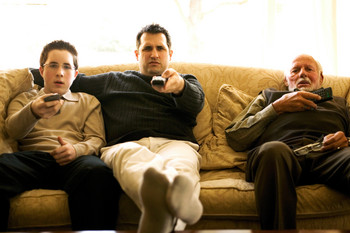Podcast
Satellites for human rights, a sprinter's anatomical advantage, the face of aggression, and newborns with accents.

Satellites for human rights, a sprinter's anatomical advantage, the face of aggression, and newborns with accents.
Researchers discover how to reverse the cognitive effects of sleep deprivation in mice.

New research suggests that parents lie to their children much more often than previously thought.
Peoples' tastes may turn toward the exotic during times of emotional upheaval in their lives.
Rescuing the brain from sleep deprivation, too much light can be depressing, sobering news in the treatment of chronic illness, and an installment of our new series, Reality Check.
Scientists have successfully transmitted information from one brain to another.
Lies parents tell their children. Is comfort food a fallacy? Imitating the dog's nose. And computer-facilitated brain-to-brain communication.
Debunking 2012 doomsday hype, developing a better rocket fuel, vegetarian spiders, and the genetics of aggression in Africanized bees.
How Monarch butterflies navigate their way to Mexico, do honeybees really die when they sting you, why apologies are better than cash, and brain scans that reconstruct what you were just looking at.
Fruit flies and humans share some of the same genes for learning; and one ant species lacks males entirely.
Ancient flax fibers found in a cave suggests humans may have been turning the plant into clothing or rope as far back as 36,000 years ago.
Nicotine strengthens brain connections that associate memories with the urge to light up.
An ancient hominid skeleton revises human evolution, the MESSENGER spacecraft makes its final flyby of the planet Mercury, facial contrasts and the use of cosmetics, and why your shower isn't as clean as you thought.
Reading disturbing, surrealistic stories may make you smarter than reading stories with straightforward plots.
Using torture to extract information from suspects may have the opposite of the intended effect.
Torture gets a failing grade from neuroscience, a new benthic rover explores the ocean floor, how surrealism makes you smarter, and putting full moon folklore to the test.
Our two nostrils may constantly take turns sending different information to our brain.
People really do walk in circles when they get lost – if there's no way for them to get their bearings.
In this episode our new series Reality Check: Does reading in dim light ruin your eyes?
